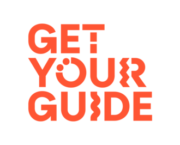Planning your Thailand trip for 2025? After living in the Land of Smiles for years as an expat, I’ve discovered countless insider secrets that would have saved me time, money, and countless headaches during my first visit.
These 30 Thailand cheat codes are the ultimate travel hacks that every visitor should know before stepping foot in this incredible Southeast Asian paradise.
Whether you’re backpacking through Thailand, planning a luxury vacation, or considering a long-term move, these proven tips will transform your experience from tourist-level to local-insider status. From navigating Bangkok’s chaotic streets to finding the best street food that locals actually eat, let’s dive into the Thailand travel guide you wish you had from day one.
Table of Contents
- Visa & Immigration Hacks
- Money & Banking Secrets
- Transportation & Navigation Cheat Codes
- Food & Dining Insider Tips
- Accommodation & Housing Hacks
- Cultural Etiquette Codes
- Safety & Health Tips
- Shopping & Bargaining Secrets
- Technology & Communication
- Hidden Gems & Unique Experiences
- Frequently Asked Questions
Visa & Immigration Hacks
1. Master the Thailand Digital Arrival Card (TDAC)
Starting May 1, 2025, you must complete the Thailand Digital Arrival Card within three days before arriving. Don’t wait until you’re at the airport! Complete it online through the official Thailand Immigration Bureau website to breeze through immigration while others struggle with paperwork.
2. Extend Your Tourist Visa Like a Pro
Here’s a game-changer: You can extend your 30-day visa exemption for another 30 days at any immigration office for just 1,900 THB ($53 USD). The secret? Visit after being in Thailand for at least 15 days. Bring passport copies, a passport photo, proof of accommodation, and save yourself from expensive visa runs.
3. The Elite Visa Secret
For long-term stays, consider the Thailand Elite Visa. While expensive upfront, it provides 5-20 years of hassle-free entry, airport fast-track service, and other premium perks that make it worthwhile for frequent visitors or digital nomads.
Money & Banking Secrets
4. Avoid ATM Fees with Cash Advances
Here’s a hack most tourists never learn: Instead of paying hefty ATM fees, go inside banks like Bangkok Bank or Siam Bank and request a “cash advance” on your debit card. You’ll skip the 220 THB ATM fees and often get better exchange rates.
5. Get a Charles Schwab Account Before You Go
Open a Charles Schwab checking account before traveling – they refund all ATM fees worldwide. Just tell them you’re going on an extended vacation (not leaving indefinitely) to avoid account complications.
6. The Baht Cash Rule
Thailand is still largely cash-based outside of high-end malls and hotels. Always carry small denomination notes (20, 50, 100 THB) for street vendors, tuk-tuks, and local markets. Many places don’t accept 1,000 THB notes.

Transportation & Navigation Cheat Codes
7. Download Grab Before You Land
Grab is Thailand’s Uber, and it’s a lifesaver in major cities like Bangkok, Chiang Mai, and Phuket. Download it before arriving and link your credit card for hassle-free rides with upfront pricing – no more haggling with taxi drivers!
8. Master Bangkok’s BTS and MRT System
The BTS Skytrain and MRT subway are your best friends in Bangkok. They’re air-conditioned, efficient, and help you avoid the notorious traffic. Get a Rabbit Card for easy travel and download transit apps to navigate like a local.
9. The Hotel Card Trick
Always grab a hotel business card with the Thai address from reception. When you’re lost or need to explain your destination to a taxi driver, just show them the card. This simple hack has saved countless travelers from communication nightmares.
10. River Taxi Secret in Bangkok
The Chao Phraya Express Boat is Bangkok’s hidden gem for transportation. It’s faster than road traffic, costs only 20-30 THB, and offers scenic views while connecting major attractions along the river.
Food & Dining Insider Tips
11. Use Wongnai Instead of TripAdvisor
Forget TripAdvisor for finding authentic Thai food. Download Wongnai – Thailand’s version of Yelp. Look for places with 4+ stars and lots of reviews from locals. You can change the language to English to navigate easily.
12. The “Mai Pet” Lifesaver
Learn this phrase: “Mai pet” (not spicy). Thai food can be incredibly spicy for Western palates. Always ask for “mai pet” or “pet nit noi” (little spicy) to avoid burning your tongue off.
13. Street Food is Safer Than You Think
Contrary to popular belief, street food in Thailand is generally very safe. Look for stalls with high turnover (busy with locals), hot food, and clean preparation areas. The best meals often come from humble roadside vendors.
14. The Plastic Bag Culture
Thailand uses plastic bags for everything – even single items. If you’re environmentally conscious, politely say “mai ao thoong” (don’t need bag) and bring a reusable cloth bag.

Accommodation & Housing Hacks
15. Book Tours Locally for Better Prices
Never book tours online before arriving in Thailand. Local travel agencies are everywhere in tourist areas and offer the same tours at much lower prices. You can haggle and often save 30-50% compared to online bookings.
16. The “Wing It” Accommodation Strategy
In Thailand, you can often get better deals by booking accommodation on the spot, especially during low season. Many hotels offer walk-in discounts that aren’t available online.
17. Use Agoda for Best Local Deals
While Booking.com is popular globally, Agoda specializes in Asia and often has better deals and more local accommodation options in Thailand.
Cultural Etiquette Codes
18. Master the Wai Greeting
The traditional Thai greeting involves pressing your palms together and bowing slightly. The higher your hands, the more respect you’re showing. Use it when greeting elders, monks, or in temples.
19. Never Touch Someone’s Head
In Thai culture, the head is considered sacred. Never touch anyone’s head, even children. Similarly, never point your feet toward people or Buddha statues – it’s highly disrespectful.
20. Respect the Monarchy
Thailand takes its royal family very seriously. Never make jokes about or criticize the monarchy – it’s actually illegal and can result in serious consequences. Stand during the national anthem in cinemas and public places.
21. Learn Basic Thai Politeness
Add “krab” (for men) or “ka” (for women) to the end of sentences as a sign of respect. Even attempting basic Thai phrases will earn you huge smiles and better treatment from locals.

Safety & Health Tips
22. Get Comprehensive Travel Insurance
Thailand’s private hospitals offer world-class care, but costs can add up quickly. Get travel insurance that covers medical emergencies and motorbike accidents (if you plan to ride). SafetyWing is popular among digital nomads for flexible coverage.
23. Motorbike Safety Reality Check
Motorbikes are everywhere in Thailand, but they’re also the leading cause of tourist injuries. If you rent one, always wear a helmet, have proper insurance, and honestly assess your riding experience. Road rash is real and painful.
24. Know Emergency Numbers
Save these numbers: 1155 for Tourist Police (they speak English), 191 for general emergencies. The Tourist Police are specifically trained to help visitors and should be your first call for any issues.
Shopping & Bargaining Secrets
25. Markets vs. Malls Pricing Strategy
Bargaining is expected at markets and street vendors but not in malls or established shops. Start at 50% of the asking price at markets and work your way up. Always be polite and smile during negotiations.
26. Chatuchak Weekend Market Timing
Visit Bangkok’s famous Chatuchak Market early morning (before 10 AM) to avoid crowds and heat. Vendors are also more willing to negotiate better prices when it’s less busy.

Technology & Communication
27. Get a Tourist SIM Card at the Airport
Skip expensive roaming charges and get a tourist SIM from AIS or DTAC at the airport. They often include app discounts for Grab or food delivery services. Data is cheap and coverage is excellent throughout Thailand.
28. Power Bank is Essential
Your phone works overtime in Thailand – GPS, translation, photos, ride-hailing. A portable power bank is essential since you’ll be using your phone constantly for navigation and communication.
29. Download Offline Maps
Download Google Maps offline for areas you’ll visit. This saves data and ensures you have navigation even in areas with poor signal, which is crucial for exploring remote beaches or jungle areas.
Hidden Gems & Unique Experiences
30. Explore Beyond the Tourist Trail
Some of Thailand’s best experiences are off the beaten path. Consider visiting places like Nan Province for authentic Lanna culture, Koh Lanta for chill island vibes without crowds, or taking the train to rural areas for authentic Thai countryside experiences.

Pro Tips for Thailand Travel 2025
Best Time to Visit: November to March offers the best weather with minimal rain and comfortable temperatures. Avoid peak tourist season (December-January) for better prices and fewer crowds.
Budget Planning: Budget travelers can get by on $25-60 per day, while mid-range travelers should budget $60-150 daily. Luxury travelers can expect to spend $150+ per day depending on accommodation and dining choices.
Cultural Immersion: Take a cooking class, visit local markets early morning, learn basic Thai phrases, and participate in local festivals like Songkran (April) for authentic experiences.
Island Hopping Strategy: Start with easily accessible islands like Phuket or Koh Samui, then venture to less developed islands like Koh Lanta or the Trang Islands for a more authentic experience.
Frequently Asked Questions
Is Thailand safe for solo travelers?
Yes, Thailand is very safe for solo travelers, including solo female travelers. Thais are generally respectful and helpful. However, always use common sense: don’t leave drinks unattended, avoid walking alone in dark areas, and trust your instincts.
Do I need vaccinations for Thailand?
While no vaccinations are mandatory for most visitors, hepatitis A and typhoid vaccinations are recommended. Consult your doctor or a travel clinic 4-6 weeks before departure for personalized advice based on your travel plans.
Can I use my credit card in Thailand?
Credit cards are accepted at high-end restaurants, hotels, and malls, but Thailand is largely cash-based. Get a travel credit card with no foreign transaction fees to save money, but always carry cash for street vendors, local markets, and smaller establishments.
What’s the tipping culture in Thailand?
Tipping isn’t expected in Thailand but is appreciated for exceptional service. Round up the bill or add 10% at restaurants. Many upscale restaurants include a 10% service charge automatically.
How much should I budget for Thailand in 2025?
Budget travelers: $25-60/day including accommodation, food, and activities. Mid-range travelers: $60-150/day for comfortable hotels and restaurants. Luxury travelers: $150+/day for high-end experiences. Costs vary significantly between Bangkok/islands and rural areas.
Is it easy to get around Thailand without speaking Thai?
Yes, especially in tourist areas where many locals speak basic English. Download translation apps, carry your hotel’s business card, and learn basic phrases like “hello” (sawadee), “thank you” (khob khun), and “not spicy” (mai pet).
What should I pack for Thailand?
Essentials include: lightweight, breathable clothing, rain jacket, sunscreen, insect repellent, comfortable walking shoes, flip-flops, swimwear, portable power bank, and any prescription medications. Pack light – you can buy most things locally.
Are there any cultural taboos I should know about?
Yes: Never touch anyone’s head, don’t point feet toward people or Buddha statues, remove shoes when entering temples and some homes, dress modestly in religious sites, stand for the national anthem, and never criticize the royal family.
What’s the best way to exchange money in Thailand?
Exchange counters often offer better rates than airport exchanges. Super Rich and other reputable exchange companies have locations throughout Bangkok and tourist areas. ATMs are widely available but charge fees (220 THB per transaction for foreign cards).
Should I learn Thai before visiting?
While not necessary for short trips, learning basic phrases enhances your experience significantly. Locals appreciate the effort and are often more helpful and friendly. Consider downloading language apps like Google Translate with offline Thai support.

Conclusion: Your Thailand Adventure Awaits
Thailand truly is the Land of Smiles, and with these 30 cheat codes in your back pocket, you’re ready to experience it like a seasoned expat rather than a typical tourist. From navigating Bangkok’s bustling streets to finding authentic local experiences that most visitors miss, these insider tips will transform your Thailand travel experience.
Remember, the magic of Thailand lies not just in its stunning beaches or ornate temples, but in the warmth of its people and the richness of its culture. Embrace the chaos, try the street food, learn a few Thai phrases, and approach every experience with an open mind and respectful attitude.
Whether you’re planning a two-week vacation or considering a longer stay, Thailand offers something for every type of traveler. The key is to balance the must-see attractions with authentic local experiences, always prioritize safety and cultural respect, and remain flexible enough to discover the unexpected gems that make Thailand such a captivating destination.
Pack your bags, download Grab, practice your wai, and get ready for the adventure of a lifetime in the Land of Smiles. Thailand is waiting to welcome you with open arms, incredible food, breathtaking scenery, and experiences that will stay with you long after you return home.
Safe travels, and may your Thailand journey be filled with authentic experiences, delicious food, and memories that last a lifetime!







